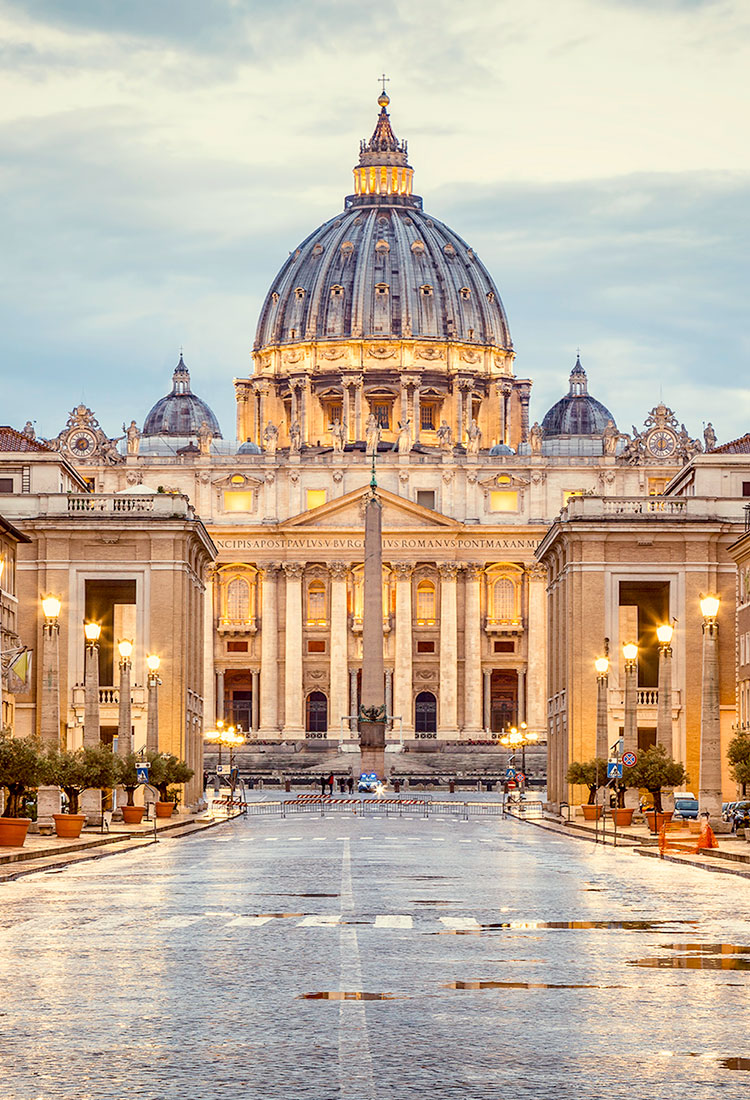Covering just 0.2 square miles and home to around 800 residents, Vatican City is the world’s smallest country both by land area and population. The city-state — which is entirely surrounded by Rome, Italy — is the global headquarters of the Roman Catholic Church and was declared an independent nation in 1929. Given this status, it’s no surprise that the Vatican is home to a plethora of historical, cultural, and religious sites — so many that it is the only country whose entirety is listed as a UNESCO World Heritage Site. Wondering where to start? Below, explore nine of the most fascinating places in Vatican City.
Bramante Staircase
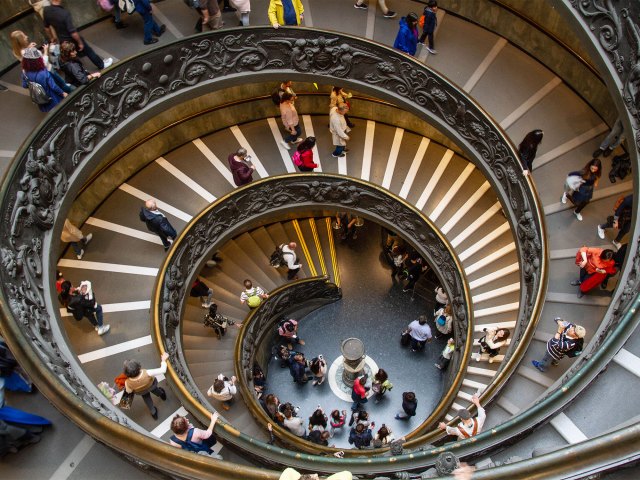
While the Vatican’s Bramante Staircase is mesmerizing for its seemingly endless intertwined spirals, the name actually refers to two separate staircases. The original, designed as a double-helix, was built in 1505 to connect the Belvedere Palace of Pope Innocent VIII to the outside and was designed to be wide enough to access by horse-drawn carriage. It’s not usually open to visitors, though special access is granted to a select few. In 1932, Italian architect and engineer Guiseppe Momo added a beautiful modern staircase that features two intertwined spirals, again with no central supporting column. This one’s where you’ll exit the Vatican Museums, but remember to admire it from the top or bottom as you do.
St. Peter’s Basilica
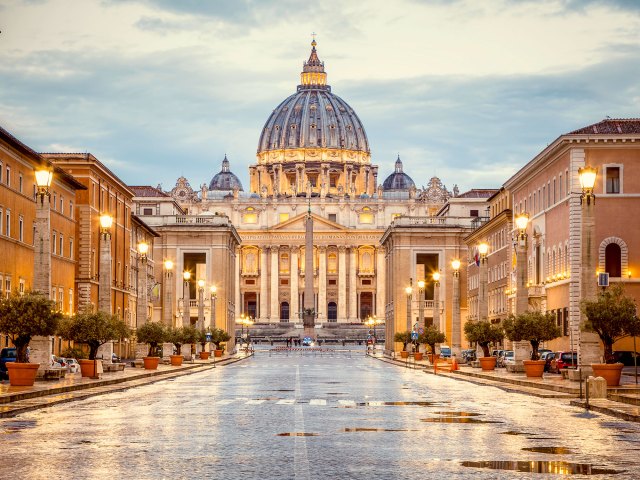
The Papal Basilica of St. Peter in the Vatican, to give this landmark its full name, is a magnificent church built in the Renaissance style and the centerpiece of Vatican City. Construction on the largest cathedral in the world began in 1506 and took 120 years, wrapping up on November 18, 1626. Topped by a monumental, 138-foot-wide dome, the basilica enshrines the work of esteemed artists and architects of the Renaissance, such as Bernini, Maderno, and Michelangelo. Yet, this fabulous structure is neither Rome’s cathedral nor is it officially the principal church of the Catholic faith. But it is an important place of pilgrimage — Catholics believe this is where St. Peter himself was buried — and it’s here that the Pope regularly delivers mass to an audience of many thousands of worshippers.
Sistine Chapel
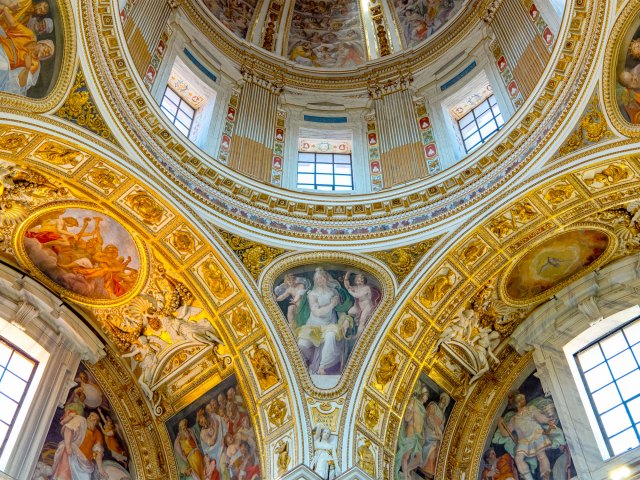
The Sistine Chapel sits within the Pope’s official residence, the Apostolic Palace. This is where the cardinals gather to choose a new Pope, but it’s so much more than a meeting space. The interior boasts one of the most famous frescoes in the world, painted by Michelangelo – the Sistine Chapel ceiling and also The Last Judgment, which covers the wall behind the altar. Together, these colorful adornments draw an increasing number of visitors each year, a figure which peaked at an incredible 6.8 million in 2019.
The Only Work Michelangelo Signed
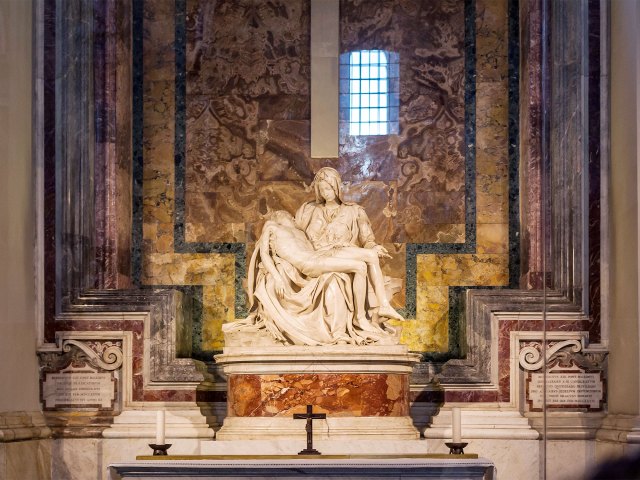
The Vatican is also where you’ll find La Pietà, a Carrara marble sculpture that is a representation of Mary holding the dead body of Christ after his Crucifixion. Not only is it a stunning technical work, but many who stand before it experience a strong emotional connection to the piece. It has the distinction of being the only piece of art that Michelangelo bothered to sign. The inscription reads: “The Florentine Michelangelo Buonarroti made this.”
The Swiss Guard
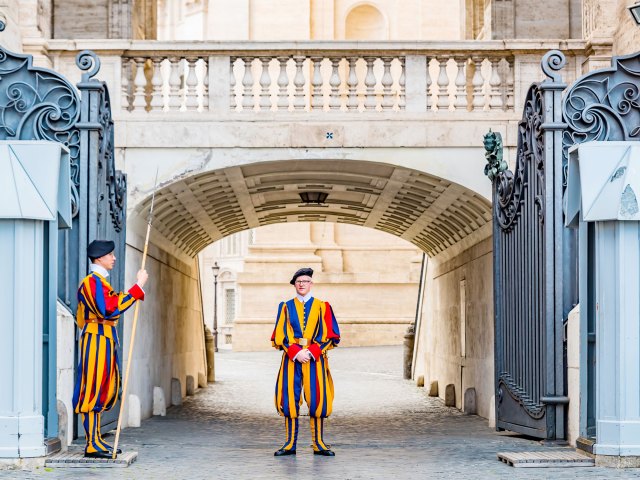
Wearing medieval-style blue and yellow striped uniforms with red trimmings, topped with red plumed helmets, the Swiss Guards are just about the most colorful thing you’ll see in the Vatican. These are the Pope’s personal escorts, but they also have a role as security watchmen for Vatican City. Don’t be fooled by the fancy costumes: this is an elite unit that recruits only the best. They might look old-fashioned, carrying pikes and swords, but are highly trained in counter-terrorism and the latest in military technology.
Vatican Necropolis
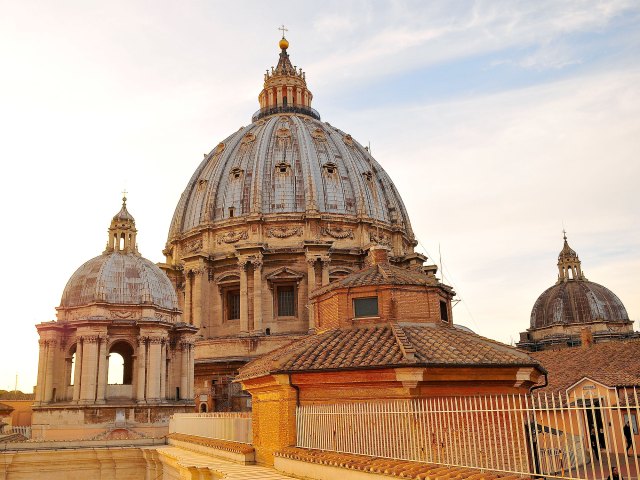
Below the Vatican is its Necropolis, where many famous Catholics lie entombed. Excavations were carried out in the 1940s but partially date back to the days of the Roman Empire. Back then, it would have been at ground level and, in accordance with Roman law, outside the city walls on health grounds. This is supposedly where you’ll find St. Peter’s grave (and most certainly his tomb) and also the Tomb of the Julii, famed for its splendid mosaics. If you wish to visit the Vatican Necropolis, you’ll need to request special permission from the Excavations Office. Numbers are strictly limited.
The Mosaic Floor at the Greek Cross Hall
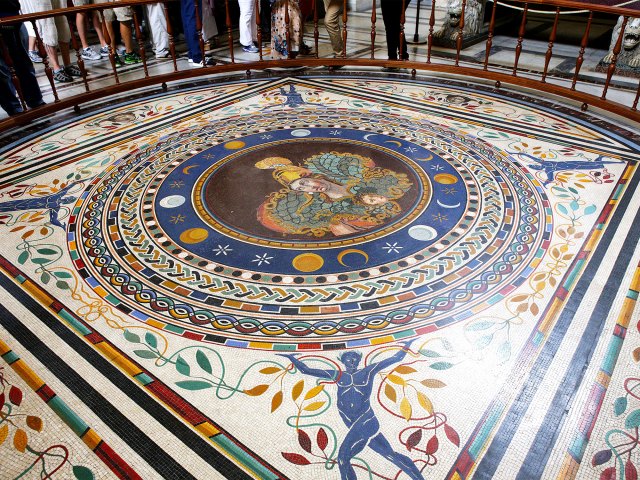
The Greek Cross Hall at the entrance to the Pio Clementino Museum features a stunning mosaic floor. It has a bust of the Goddess of War and Wisdom, Athena (known to the Romans as Minerva) as its centerpiece and is studded with blue lapis lazuli, a semi-precious stone. Two pink granite columns flank this imposing space, which architect Michelangelo Simonetti created in the 18th century.
The Vatican’s Gardens and Grottoes
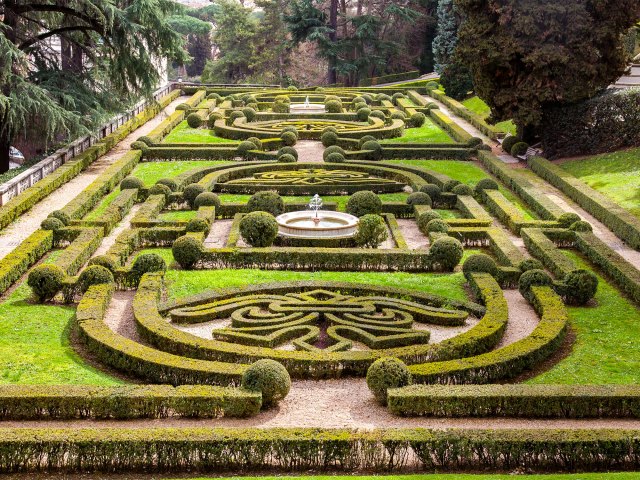
The Vatican’s not all built up. In fact, more than half of this tiny state consists of green space. Its beautiful gardens are the perfect antidote to crowds and queues; they opened to the public in 2014. The oldest part dates from the 13th century and was a space for meditation and contemplation, as well as a place to study the medicinal value of plants. Highlights for today’s visitors include the Lourdes Grotto, an early 20th-century copy of the French cave where Bernadette Soubirous saw a vision of the Virgin Mary.
Rome from the Dome
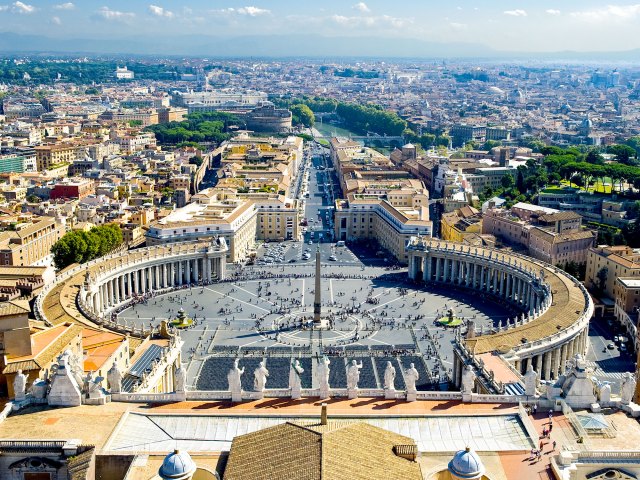
One of the coolest things to see at the Vatican is actually what’s around it: Rome. Book a dome tour to the top of St. Peter’s Basilica. An elevator ride or 231 steps gets you to the roof terrace. Grab a coffee and head out onto the balcony for a breathtaking view over Saint Peter’s Square and the Eternal City. In front of you, statues of Jesus and his Apostles are a reminder of where you are. Inside is also impressive. A further 320 steps lead to the top of the dome. From up here you get a closer look at Michelangelo’s glorious mosaics.
More from our network
Daily Passport is part of Inbox Studio, an email-first media company. *Indicates a third-party property.






